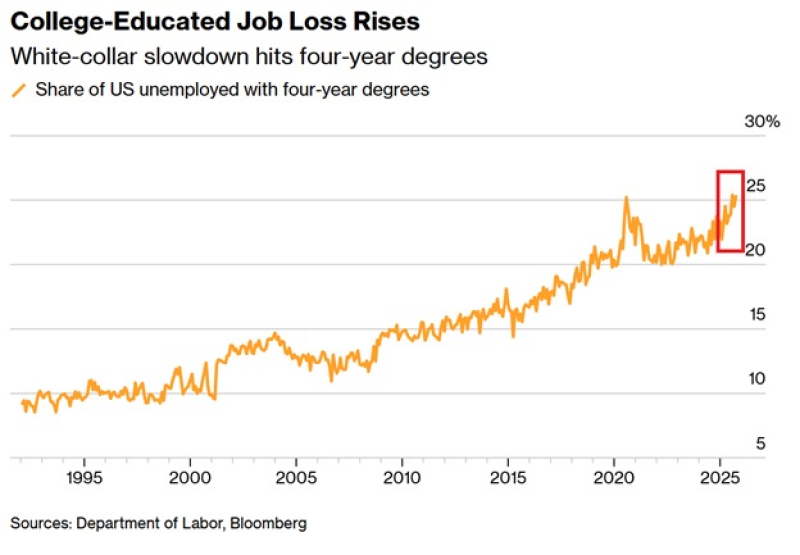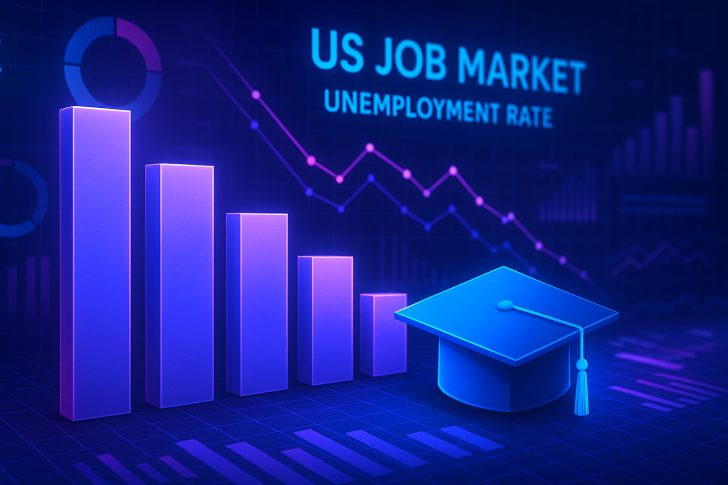⬤ The U.S. job market now shows weakness in places that used to stay solid. College graduates with four year degrees account for 25.3 percent of all unemployed workers nationwide - the highest share on record. Data from @KobeissiLetter show the share has risen steadily for years and the latest jump into 2025 signals a clear change in who cannot find work.

⬤ The figures are stark. Since the 2008 financial crisis, the share of unemployed workers who hold bachelor's degrees has doubled. At present more than 1.9 million Americans aged 25 and older with at least a four year degree are out of work. This undercuts the long held view that higher education protects workers during downturns. White-collar jobs, once thought safe from recessions, now face pressure.
The belief that a college degree guarantees job security is under unprecedented strain.
⬤ Younger workers confront harsher conditions. The unemployment rate for Americans aged 20 - 24 has climbed to 9.2 percent - the highest level since May 2021. That marks a 2.2 percentage point rise from a year earlier, a pace of decline usually seen only in recessions. When both recent graduates plus experienced degree holders search for work without success, the slowdown appears to be broadening rather than staying within certain sectors or age groups.
⬤ The impact reaches past the unemployment rate. When college educated workers and young adults remain jobless, household spending falls, economic confidence erodes and businesses reconsider expansion plans. The simultaneous rise in unemployment across multiple education levels indicates a labor market that is truly losing momentum. How long the trend lasts - but also how severe it becomes - will probably steer economic policy and business strategy throughout 2025.
 Eseandre Mordi
Eseandre Mordi

 Eseandre Mordi
Eseandre Mordi


